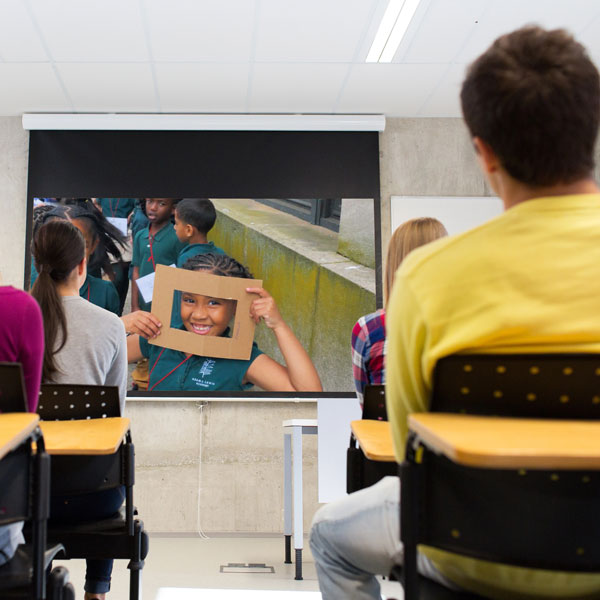How to Talk to Parents
About Play-Based Learning
Parent Communication Matters
Parents may hear the word “play” and worry that their children aren’t learning essential skills and curriculum. Clear communication helps build trust, gives insight into what their children are learning, and shows families the value of play-based learning.

Common Parent Concerns
about Play-based Learning
Rigor: Will my child learn what they need to know and be challenged through play-based learning?
Play is rigorous learning. It builds cognitive, social, and academic skills through active and meaningful engagement with the content.
Standards: Will this approach meet Common Core and district requirements?
Standards are met and often exceeded. Lessons are intentionally aligned with curriculum goals.
Age Appropriateness: Isn’t play just for preschoolers?
Play benefits all ages. Older students tackle complex projects through play-based inquiry and become more curious and able to think more abstractly.
Teacher Control: Is the classroom chaotic without direct instruction?
Teachers guide the process. Classrooms are structured, intentional, and focused on outcomes.
Sample Letter for Families
Dear Families,
Welcome to our classroom! We’re looking forward to a great year with your child and to getting to know your family. Our classroom might function differently from the classroom you remember from your own elementary school years, but be assured that this was done intentionally.
In our classroom, children are building, creating, designing, debating, and collaborating in small groups and pairs. It may look like play and your child may describe their day as one spent “playing,” but this is a different kind of play than the free-play you might be imagining. Your child will be engaging in play-based learning, which is an intentional, inquiry-based approach that is aligned with standards and has the same goals as traditional classroom learning.
Research on child development tells us that children learn best when they are active, curious, and engage in real-world problem solving. Play-based learning helps children connect knowledge and skills across disciplines in deep and meaningful ways.
We would like to share with you some of the basic ideas of play-based learning:
- Play-based learning doesn’t make school any less rigorous; it has the additional aim to make learning more meaningful and joyful to keep children engaged and excited.
- Play-based learning isn’t separate from academic instruction; it’s the foundation of how children learn.
- Our approach is directly aligned with the Common Core and state and district standards in math, science, social studies, literacy, and social-emotional learning.
- Hearing the word “play” may make one think that this approach is only for our youngest learners, but this is not the case. Children in upper-elementary grades also benefit from this type of learning. Play-based learning gives older students opportunities to tackle more difficult projects and issues, become more independent and confident, and gain a deeper understanding of what they are learning and make connections across disciplines and to the real world.
- Teachers are still in charge; they set the stage, scaffold the learning and, with input from the class, decide on community rules. Play-based classrooms are not chaotic and disorganized; they are purposeful and meaningful.
We invite you to visit and see your child’s learning in action. You’ll witness students solving problems, creating solutions, and practicing the 21st-century skills they’ll need for the future.
We look forward to an exciting year of discovery together.
Sincerely,
[Your Name]

Inviting Parents Into the Classroom
- Offer an observation day or open house
- Share photos or short videos of students engaged in play-based learning
- Highlight connections between classroom activities and curriculum goals and standards
- Encourage parents to ask questions or share observations about what their child is learning
You can also invite parents to watch the documentary, Based in Play. The opportunity to see play-based learning in real classrooms can help families understand why this approach works and how it benefits both students and educators.
Next Steps
Strong parent partnerships make play-based learning more successful. By addressing concerns directly and sharing evidence, you help families become advocates for this play-based learning.
- Share studies that prove it works: Research Evidence
- Tackle misconceptions head-on: Play-Based Learning Myths
- Explore resources to begin with play-based learning: Implementation Guide